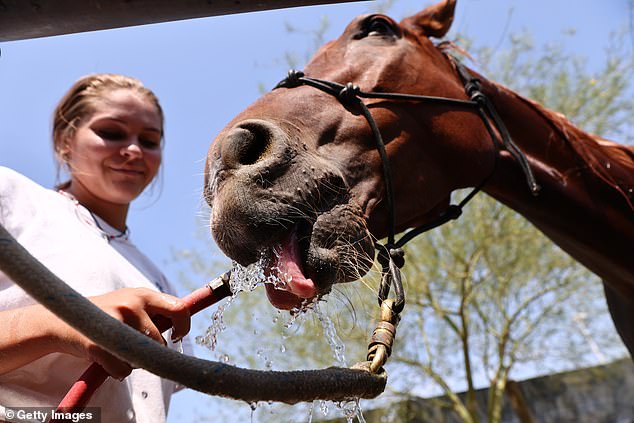They say only fools and horses work.
But equines are far more intelligent than previously thought, scientists say, after a study showed the animals performed better than expected at a tricky game.
The researchers found that when denied treats for not following the rules, the horses could instantly change their strategy to get more rewards.
This shows that animals have the ability to think and plan ahead, something previously thought to be beyond their capabilities, said scientists at Nottingham Trent University (NTU).
Knowing how horses learn can help keepers train them more humanely and improve their welfare, the team added.
Equines are far more intelligent than previously thought, scientists say, after a study showed the animals performed better than expected at a tricky game.
Dr Carrie Ijichi, senior lecturer in equine science at NTU, said: “Horses are not natural geniuses, they are often thought of as mediocre, but this study shows they are not average and are in fact more cognitively advanced than we give them credit for.”
To understand more, the researchers gave 20 horses a three-stage task.
In the first stage, the animals touched a piece of card with their nose to receive a treat.
But things got more complicated when a light was introduced and the horses were only allowed to eat something if they touched the card while the light was off.
The team found that the horses continued to touch the card blindly, regardless of whether the light was on or off, and were rewarded for correct responses.
In the final phase of the game, a penalty was applied for touching the card when the “stop” light was on which resulted in a 10-second timeout.
But instead of tapping the card indiscriminately, the team found that the horses followed the rules and only made a move at the right time to receive their reward.
The researchers said this suggests that rather than not understanding the rules of the game, the horses had understood them all along, but had found a way to play in the second stage that didn’t require much attention.
Louise Evans, a PhD candidate from NTU’s School of Animal, Rural and Environmental Sciences, said: “We expected the horses’ performance to improve when we introduced rest, but we were surprised by how immediate and significant the improvement was.
‘Animals typically need several repetitions of a task to gradually acquire new knowledge, whereas our horses improved immediately when we introduced a cost for errors.
This suggests that the horses knew from the beginning what the rules of the game were.
The researchers said the findings, published in the journal Applied Animal Behaviour Science, suggest horses have the ability to form an internal model of the world around them to make decisions and predictions, a technique known as model-based learning.
Model-based learning was previously thought to be too complex for horses because they have an underdeveloped prefrontal cortex, a part of the brain associated with strategic thinking.
Dr. Ijichi said this suggests the hoses “must be using another area of the brain to achieve a similar result.”
She said: “This teaches us that we shouldn’t make assumptions about the intelligence or sentience of animals based on whether they are ‘built’ the same as us.”
(tags to translate)dailymail

